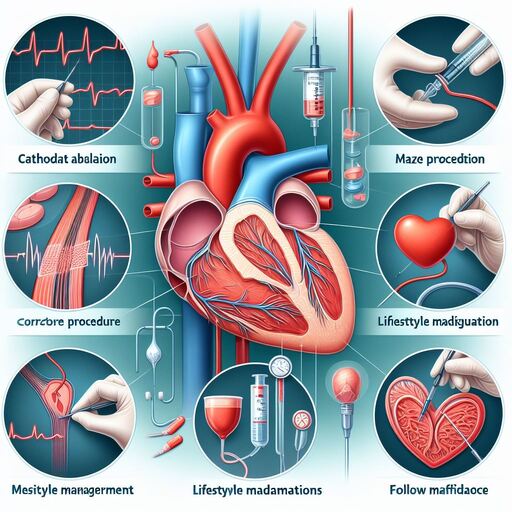Treatment and Medication Options for Atrial Fibrillation
Treatment and Medication Options for Atrial Fibrillation
Atrial fibrillation (AF) is a common heart condition that affects the upper chambers of the heart. It causes the heart to beat irregularly, which can lead to fatigue, shortness of breath, and other symptoms. The treatment options for AF depend on several factors such as the severity and duration of the condition, age, sex, medical history, and underlying conditions. Here are some common medication options used to treat AF:
1. Antihistamines: Certain antihistamines, such as loratadine, may be used to treat AF by blocking histamine receptors in the heart muscle, which helps regulate its electrical activity. However, these medications may have side effects such as drowsiness and dry mouth.
2. Antiarrhythmics: These medications are commonly used to prevent or control irregular heartbeats, including AF. They work by blocking the abnormal electrical impulses that cause the heart to beat irregularly. However, antiarrhythmic medications may have side effects such as nausea, dizziness, and difficulty concentrating.
3. Calcium channel blockers: These medications are commonly used to treat AF by dilating the blood vessels in the heart, which helps reduce the oxygen demand on the heart muscle and regulate its electrical activity. However, calcium channel blockers may have side effects such as dizziness, constipation, and swelling of the feet or ankles.
4. Beta blockers: These medications are commonly used to treat AF by slowing down the heart rate and reducing the oxygen demand on the heart muscle. They work by blocking beta receptors in the heart muscle, which helps regulate its electrical activity. However, beta blockers may have side effects such as dizziness, fatigue, and difficulty concentrating.
5. Anticoagulants: These medications are commonly used to prevent stroke and other complications associated with AF by reducing the risk of blood clots forming in the heart or blood vessels. They work by blocking the enzymes that help the blood clot. However, anticoagulants may have side effects such as bleeding, bruising, and increased risk of falls.
Treatment and Medication Options for Atrial Fibrillation
It’s important to note that medication options for AF may vary depending on individual factors such as age, sex, medical history, and underlying conditions. If you are concerned about your heart health or experiencing symptoms of AF, it’s important to speak with a healthcare provider to discuss appropriate treatment options and monitor your condition closely.
Treatment and Medication Options for Atrial Fibrillation

